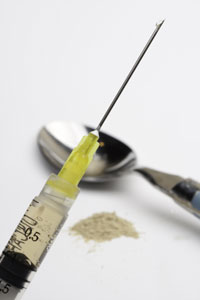 Over the last few years, a number of firms have started running drug and alcohol tests on their employees. This is simply because of the fact that a large chunk of the Australian population is addicted to various kinds of drugs in the present era. From the youth of the country to people closing in on retirement, drugs like cocaine and heroin seem to elude no one. While the statistics might seem to be rough and ugly, there are a number of measures that can be taken in order to help drug and alcohol addicts and bring them back to sobriety.
Over the last few years, a number of firms have started running drug and alcohol tests on their employees. This is simply because of the fact that a large chunk of the Australian population is addicted to various kinds of drugs in the present era. From the youth of the country to people closing in on retirement, drugs like cocaine and heroin seem to elude no one. While the statistics might seem to be rough and ugly, there are a number of measures that can be taken in order to help drug and alcohol addicts and bring them back to sobriety.
Drugged and Out
Heroin is a commonly abused drug in the country and one of the most disturbing facts is that the drug has found its way in college hostels and offices. If a person gets hooked to heroin, it becomes really tough to help him get over his addiction. The withdrawal symptoms make it extremely tough for the concerned person to quit easily. A large number of heroin addicts have tried to quit cold turkey but quitting cold turkey is not such a good idea unless a rehab centre is making you do it.
Addiction to a drug like heroin largely causes the professional decline of a person. An addict would not be able to give his hundred percent at work and won’t be able to prioritize his responsibilities. Shift in focus, excessive craving for his drug, changed social behaviour and lack of concentration is the common symptoms of an employee addicted to heroin.
Addiction to drugs has been classified as a disease and therefore an addict should not be treated as an outcast but instead he should be helped as a patient. Experiencing withdrawal symptoms is no walk in the park and patients have to go through a lot of physical and mental pain during withdrawal.
Here are some of the most common withdrawal symptoms that a heroin addict might have to confront:
- Insomnia and sleeplessness: Insomnia is one of the most common withdrawal symptoms that alcohol and heroin addicts come across.
- Cravings: Excessive craving for heroin comes into picture because of increased dopamine levels.
- Chills and sweating: Chills often run down an addict’s body during withdrawal. Similarly, excessive sweating is another common withdrawal symptom.
- Depression: Depression is something that a person experiences during his addiction days and even after that.
- Irritability: Irritability can even lead to violent behaviour, which is a common feature among people living in a rehab centre. Change in behaviour of an addict during withdrawal symptoms might hurt the family members and the friends of the addict but the ones close to the addict should be patient and help the addict go through that phase.
- Suicidal Thoughts: Sudden mood swings can often lead an addict to suicidal tendencies.
The above withdrawal symptoms make life hard for an addict and therefore an addict should be supported and helped by his colleagues and his family members in spite of the hurtful words he might hurl on people around him time and again. Note that it is not the person talking but the drug!
If you need an onsite screening programme to test your employees, then telephone Mediscreen on 1300 797040
References:


